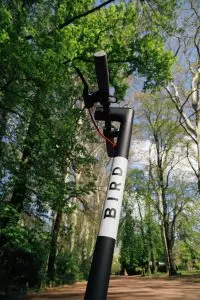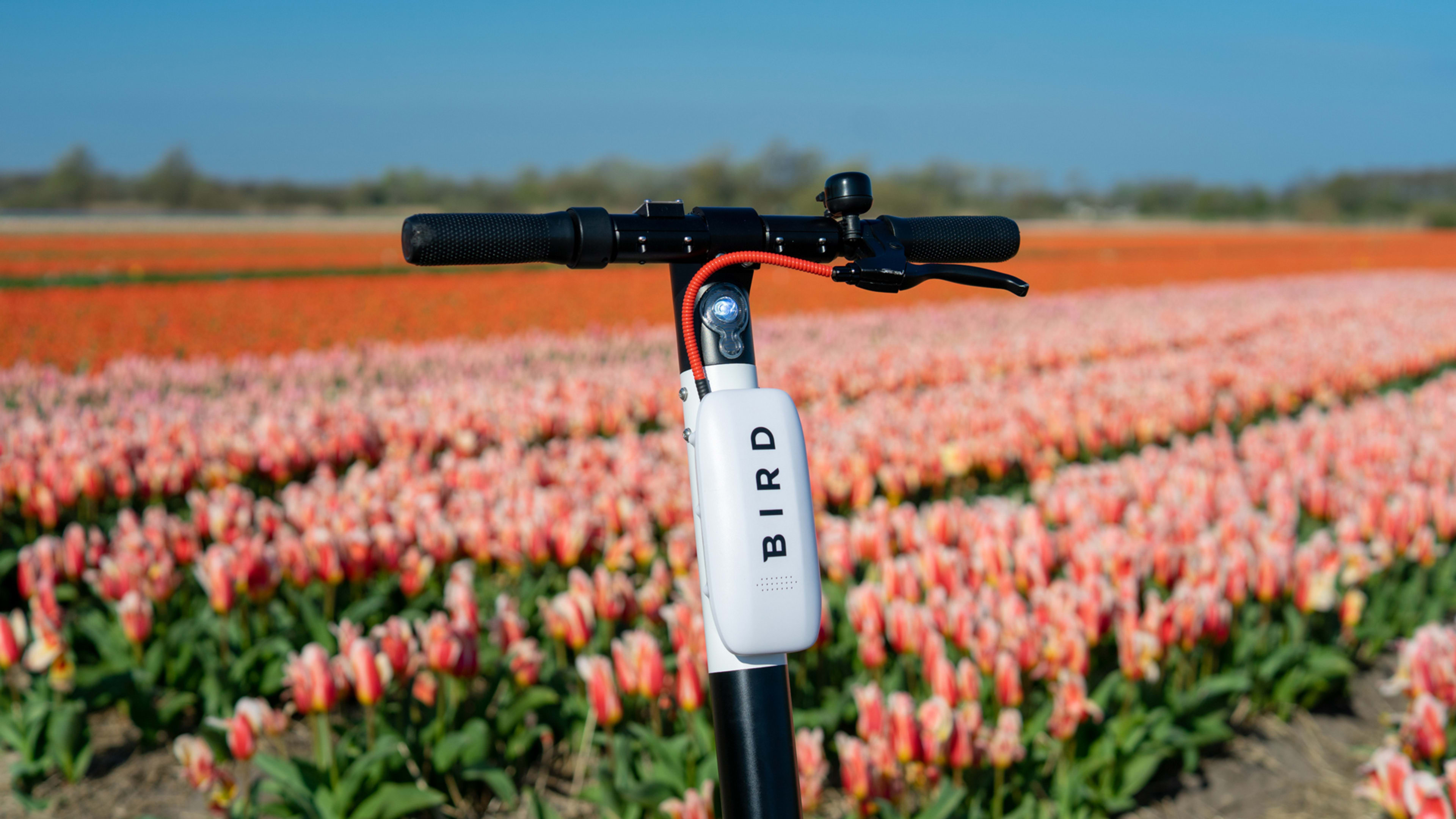The scooter company Bird wants to make urban transportation more sustainable by replacing short car trips in cities. But this goal is made more difficult because the company has its own sustainability challenges: the pollution from trips taken to collect the electric scooters so that they can be charged, the power used for charging, and the short life of its vehicles. But it is trying to cut those emissions; today, the company announced that it’s buying renewable energy credits and carbon offsets to mitigate the energy used to deliver and charge its scooters. It’s also continuing to redesign scooters so they last longer on the streets.
“We think of Bird as a full-on sustainability company,” says Melinda Hanson, the company’s head of sustainability. “The first step, of course, being that we are providing zero-emission transportation to all of our riders.” Zero emissions, in this case, just means that as the electric scooters travel down a bike lane or sidewalk, they aren’t belching out pollution like a car. But the new renewable energy credits and carbon offsets, which support projects like reforestation along the Mississippi River and installing solar panels on schools in California.

Another challenge for longevity is the way that people treat the scooters–from riders who leave them tipped over on the sidewalk to people who burn them or toss them into the ocean, sometimes as a form of protest as scooters proliferate in cities. Hanson thinks that the abuse will lessen as the novelty wears off; bike-share bikes also faced more vandalism when they were new. After people try the scooters, the company’s research indicates, their opinion of them usually changes for the better.
The company is now working on a full life-cycle analysis so that it can better understand its carbon footprint, and exactly how much it’s improving the sustainability of transportation in cities. One step is understanding how many of the trips taken on scooters replace a car ride, rather than helping someone who would have walked go a little faster. Bird is working with MIT to find the best way to study that question, but there are signs that the impact may be relatively large. In Portland, Oregon, for example, a city survey found that roughly one-third of Portlanders who rode scooters would have driven a car (including ride-share options like Lyft and Uber) otherwise. The number was higher for people visiting the city. The impact could continue to grow: Since scooters first took off a year ago, the number of “micromobility” rides on shared bikes and scooters has more than doubled, to 84 million rides in the U.S. last year. Even if only a fraction of those rides replace driving, that’s a meaningful number.
Recognize your brand’s excellence by applying to this year’s Brands That Matter Awards before the early-rate deadline, May 3.
